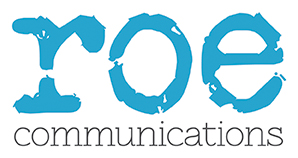Over many years of working with business schools, we have come across numerous misconceptions about what media relations is all about.
Done well, media relations can help you build a powerful reputation, stand out from competitor schools, deliver new content and boost your online presence.
But without focus, clarity or investment, it can also spell a lot of effort for relatively little return.
Don’t want that to be you?
Then read on for our top six myths about business school media relations – and how to change them!
Myth #1: It’s all about press releases
Press releases can be a useful tool when you want to communicate significant news on a wide scale. But they are not the answer to everything.
The problem usually comes when business schools fire out press releases through an automated distribution system, to a huge list of journalists, and are then disappointed with the outcome.
Rather than going straight to how you are going to deliver your news, consider why you are doing it, what you want to achieve and who you want to target.
For instance, it may be that achieving press coverage in a targeted publication will get you a better return than a scattergun approach.
Myth #2: It’s a cheap way of advertising
Media relations falls into the category of earned media – in other words, you need to persuade journalists to write or cover something that will help you.
Getting third-party endorsement for your school is powerful because people are much more likely to believe an influencer, like a journalist, than a paid-for advertisement.
And while media relations can work effectively alongside your sales and marketing campaigns, it is not a substitute for them.
Journalists judge stories on their newsworthiness and, crucially, why they matter to their readers, viewers, or listeners.
Asking the right questions – particularly “why” and “how” – at the start of your briefing process will guide you on how strong your story really is and the angles that will attract their attention.
Myth #3: Any press is good press
Media relations is an investment, whether you decide to do it in-house or outsource to an agency. On that basis, you want to see ROI.
Consider – if the result of your media relations activity is a disparate set of press mentions, across a wide range of media, without any real message or focus, is that a good result?
We think that it’s quality that counts. That means being clear about what you want to achieve, picking the right media targets for your campaigns and focusing on what you want to be known for.
Myth #4: Our name will open doors
This one is really for the big institutions. Yes, clearly if you are a top international business school, your brand name carries some weight.
But as we often say to clients: a journalists’ job is to write stories – not to write your story.
Journalists receive hundreds of pitches every day. It’s not a good starting point to think that your school will automatically interest journalists. Keep focusing on newsworthiness.
Myth #5: One hit is enough
Do you ever get that feeling of achievement when you score a great piece of press coverage for your business school?
We know we do.
But we also know that building reputation is a long game. In a world where people’s attention spans are short and competition for their attention is high, you need to remind them constantly that you are here.
A consistent, focused PR strategy will help you build your profile and get in front of the right people.
Myth #6: Media relations is a ‘nice to have’
If this year has taught us anything, it’s that having a good reputation is essential.
We can all think of companies and leaders that have behaved well during the pandemic – and those less so.
Of course, reputation is much more than your profile in the press. It is about how you behave, how you treat your stakeholders and how you show up.
But be assured, if you are not investing in media relations, your competitors most certainly are.
And with 65 per cent of consumers now using online search as their most trusted source of information, positive endorsements in the media are a powerful addition to your marketing effort.
In short, pro-active media relations should be an essential part of any business school’s promotional strategy.
If you want to get better results from your media relations, click HERE for more insights.

